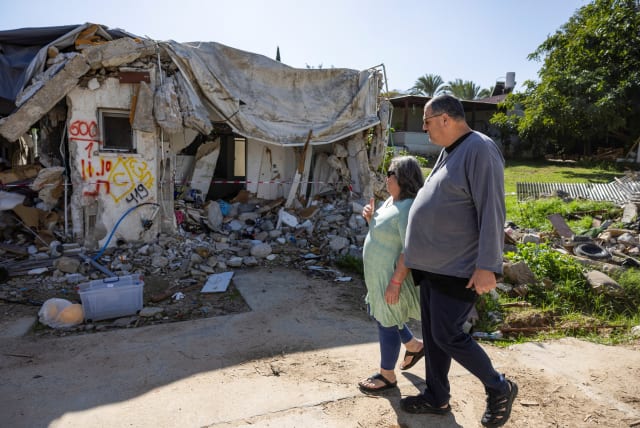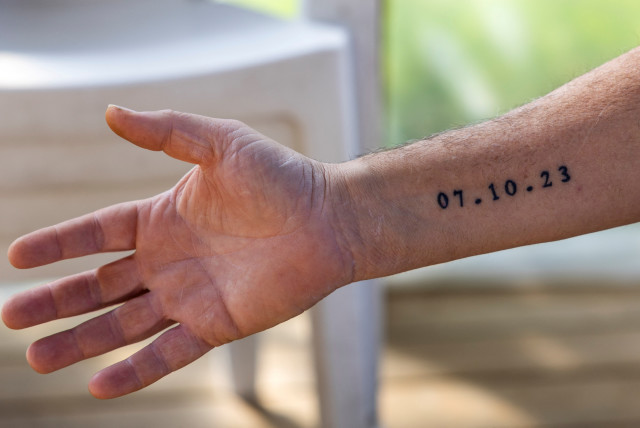Israeli couple returns to kibbutz ravaged by Hamas attack

Three months on, signs of the Oct. 7 Hamas attacks remain everywhere in Kibbutz Kfar Aza.
A sticker on the front door declares the house contains no dead bodies or body parts. On the walls, months-old spray paint confirms no gunmen or explosives are present.
Three months on, signs of the Oct. 7 Hamas attacks remain everywhere in Kibbutz Kfar Aza, but the markings recorded on their house, and the harrowing memories they evoke, have not deterred Ayelet Khon and Shar Shnurman from coming back home.
The couple are among the first to return to their house in the traumatized community just a few km (miles) from the Gaza Strip. It was one of the hardest hit by the Hamas assault that sparked the devastating war in Gaza, now in its 100th day.
Tens of thousands of Israelis were forced to leave their homes when the fighting erupted. After weeks living in central Israel, the couple insisted on coming back.
'Worse to be a refugee than at home'
"For us, it was worse to be a refugee than to be at home," said 55-year-old Khon.For nearly everyone else, it is still too dangerous. Fighting across the border is audible and when rocket sirens go off, there is just around 10 seconds to take cover.
The government is paying for displaced residents to stay at otherwise vacant hotels and guest houses.
Holding hands, the couple, who have no children, walk along a pathway past destroyed houses and makeshift memorials where neighbors were killed in the massacre.
"Kids shouldn't be here right now," Khon said.
Once water and electricity were turned back on, the couple broke ranks and returned to Kfar Aza. Now they are busy organizing their house, folding laundry, and sit together on the front porch despite the frequent explosions in the background.
They survived the Hamas rampage by hiding for hours in their safe room, the sounds of non-stop shooting, grenades, and RPG fire just outside their door.
"I still remember that our neighbor in this house, in this house, in this house, got killed," said Shnurman, 62, referring to a row of houses where residents were killed.
There is a sense, he said, that if they don't return to Kfar Aza, then very soon Israel will also give up on trying to restore normal life in larger cities farther north.
Khon said coming back brings some closure.
"I'm still here, the people that died here are people that loved this place," she said. "Our neighbor especially, she couldn't understand how come people don't want to live in Kfar Aza. She was very much in love with this kibbutz."
"Coming back to live here is doing something, the way I see, is doing something for her. Not forgetting that she was killed here."
Jerusalem Post Store
`; document.getElementById("linkPremium").innerHTML = cont; var divWithLink = document.getElementById("premium-link"); if (divWithLink !== null && divWithLink !== 'undefined') { divWithLink.style.border = "solid 1px #cb0f3e"; divWithLink.style.textAlign = "center"; divWithLink.style.marginBottom = "15px"; divWithLink.style.marginTop = "15px"; divWithLink.style.width = "100%"; divWithLink.style.backgroundColor = "#122952"; divWithLink.style.color = "#ffffff"; divWithLink.style.lineHeight = "1.5"; } } (function (v, i) { });

